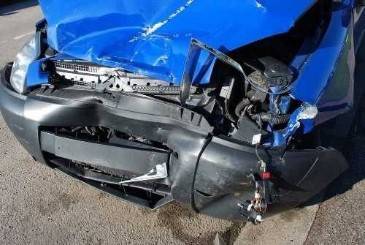In today’s digital age, social media has become an integral part of our daily lives. From sharing photos and updates to connecting with friends and family, platforms like Facebook, Instagram, Twitter, and TikTok have revolutionized the way we communicate and share information. However, the widespread use of social media has also introduced new challenges and considerations in various aspects of life, including legal matters such as car accident claims. This article explores the significant impact of social media on Texas car accident claims and the requirements involved in handling such cases.
The Power of Social Media
Social media platforms offer users an open and accessible forum to express their thoughts, share experiences, and document their lives. While these platforms can be a valuable tool for staying connected, they can also have unintended consequences when it comes to personal injury claims arising from car accidents.
Evidence Gathering: Many accident victims may unknowingly provide critical evidence against their own claims by posting on social media. Insurance companies and opposing legal counsel often scour social media profiles to find any information that contradicts the injured party’s statements. For example, a claimant who posts pictures of themselves engaging in physical activities after the accident could undermine their claim of severe injuries.
Privacy Concerns: It’s important to remember that privacy on social media is relative. Even if your profiles are set to private, there is no guarantee that your posts won’t be seen by someone on the opposing side. Friends of friends, screenshots, and shared content can all lead to the dissemination of information that you may have intended to keep private.
Impaired Credibility: Inconsistent information on social media can damage the credibility of your claim. If you post about an accident in a certain way and later provide conflicting details in court or to an insurance adjuster, it can be used against you. This can make it challenging to establish trust with the other party involved in the claim.
Requirements for Handling Social Media in Car Accident Claims
Given the potential impact of social media on car accident claims, it’s essential to understand the requirements and best practices for managing your online presence during such situations:
Limited Sharing: During the pendency of your car accident claim, it’s advisable to limit what you share on social media. Avoid discussing the accident, your injuries, or your case in any way. Additionally, refrain from posting updates or photos that could be misconstrued to your detriment.
Adjust Privacy Settings: While it’s not foolproof, adjusting your social media profiles’ privacy settings can help limit who can see your posts. However, it’s essential to remember that even private profiles can still be accessed through mutual connections or other means.
Consult with Your Attorney: Your personal injury attorney should be your go-to resource for guidance on handling social media during your claim. They can provide specific advice tailored to your situation and help you understand what is appropriate to share and what should be avoided.
Document and Archive: If you have already made posts related to your accident or injuries, it’s important to preserve this information. Take screenshots or save copies of relevant posts and conversations, as they may become crucial evidence in your case.
Honesty is Key: Always be truthful when discussing your accident with your attorney or insurance company. Providing accurate information ensures that your legal team can effectively represent your interests and helps build credibility for your claim.
Proceed with Caution: Even after your case is resolved, be mindful of what you share on social media. There may be lingering effects or consequences related to your accident, and maintaining discretion is often a wise choice.
The Broader Implications
Beyond the individual impact on personal injury claims, the role of social media in car accidents and legal proceedings extends to broader societal implications. Here are some critical considerations:
Distracted Driving: The prevalence of smartphones and the temptation to check social media while driving have contributed to an alarming rise in distracted driving accidents. Posting or browsing social media behind the wheel diverts attention from the road, endangering not only the driver but also others on the road. The consequences of these actions can result in severe accidents and legal consequences for the distracted driver.
Public Awareness: Social media platforms also play a vital role in raising awareness about road safety and advocating for safer driving practices. Various organizations, law enforcement agencies, and influencers use social media to disseminate information about the dangers of reckless driving and the importance of adhering to traffic laws.
Changing Legal Landscape: As social media continues to evolve, so do the legal standards surrounding its use in courtrooms. Courts across the United States are continually adapting to the complexities of social media evidence, making it crucial for both legal professionals and individuals to stay informed about the latest developments in this area.
Privacy and Ethical Concerns: The use of social media in legal cases raises significant privacy and ethical concerns. While it can provide valuable evidence, it also challenges notions of privacy and free speech. Balancing the need for evidence with individuals’ rights to privacy is an ongoing debate in legal circles.
